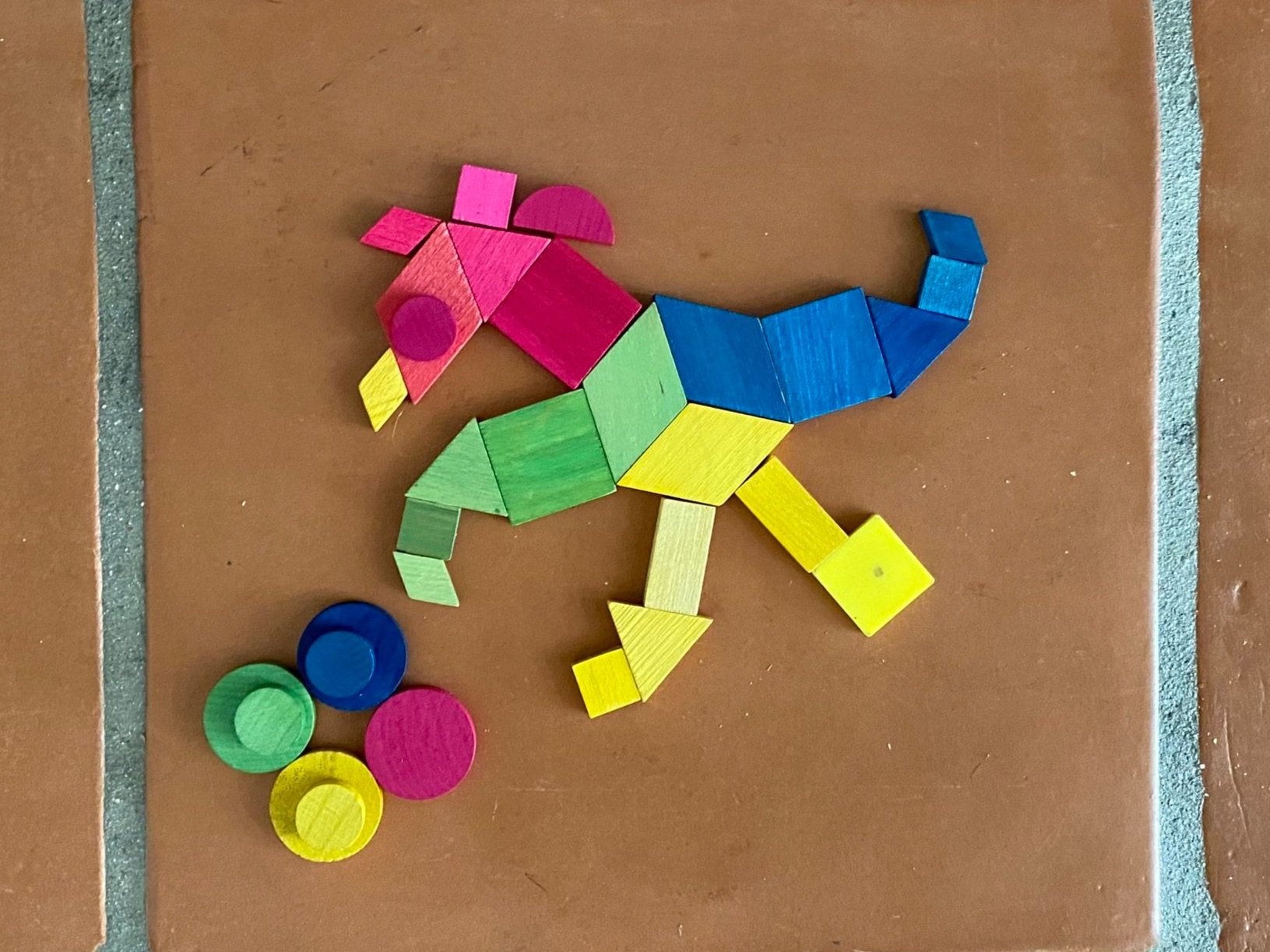Math Games and Activities for Preschoolers
We love playing to learn! Here are some of our favorite math games and activities that use stuff you typically have around the house.
1. Flip It, Make It, Build It Game
We used a cookie sheet from the dollar store and magnets to hold down the paper. You can print the paper I made for free here. You can get creative with the actual items you use for this game. For Flip It we used magnetic numbers from the seasonal section at Target, but you could use flashcards, foam numbers, dice etc. For Make It we used cotton balls, but here you could use pom poms, little animals, acorns, really any counters would work. For Built It we used legos, I guess you could use blocks or magnet tiles here instead. We took turns drawing a number for a while and then Oak wanted to play by himself for a while.
2. Match the Parking Spot
If you know Oak you know that he loves driving cars. He loved helping to draw the parking spaces and dots on the pieces of masking tape. We stuck numbers on each of the cars and then he had to park each of the cars in the space with a matching number of dots.
3. Roll and Race
For this game you need magnet tiles, dice, and something to race - we’ve used everything from cars to rubber ducks to animal figures. Oak likes building different road shapes but this game is simple. Take turns rolling the dice and move your character forward the number of spaces you rolled. Whichever character makes it to the end first is the winner!
If you haven’t invested in magnet tiles yet, we love them! There are so many play options with this fun open toy (for more ways to play with magnet tiles, check out this post). This is our favorite brand of Magnet Tiles.
4. Addition with Counters
Oak likes to choose workbooks from the dollar store. To help him solve the math problems we pull out the counters. He counts the number balls in two different colors and then counts them together to find the answer then he loves writing the answer into the workbook. We love our Treasures from Jennifer wooden hundred board, but really this concept works with any kind of counter. We’ve done this same concept in cups where you count each number into a cup and then dump them together. My kids liked this book that teaches basic addition concepts “This Mission of Addition”.
5. Subtraction Haircuts
For this game you need scissors, paper, and tape. Cut the paper into little rectangles and write a simple subtraction math problem on each. Oak liked helping me come up with the math problems. Then cut the hair into strips equal to the larger number. The child then cuts off the smaller number to solve the subtraction problem and see how many strands of hair are left. We taped our hair onto a little whiteboard with faces drawn on it so that it was each to switch out the hair and do more than six.
6. Probability Game
We read the book Probably Pistachio by Stuart Murphy and then talked about probability and played this game. We experimented with different quantities of red and blue coins in our bag (only red, half red and half blue, 2 red and 6 blue, etc.). Before we played I talked to Oak about how which color he thought we were more likely to draw from the bag. Then we drew a coin out 10 times, putting it back in the bag each time, and recorded how many times we drew each color.
7. Counting to 100 With Our Hundred Board
Oak has a blast finding the numbers and putting them in order 1-100 on our hundred board. We love our Treasures from Jennifer wooden hundred board but you can various free printable versions online.
8. Measuring Things
We started by using cars as a unit of measurement - how many cars long is this line? How many cars long is this other line? Which line is longer? Recently Oak has been interested in learning about inches, feet, centimeters, and millimeters. He’s had fun measuring tables around our house and comparing sizes.
9. Playing with Scales
We have a pig scale that my kids love playing with. The cool thing about this scale is that the numbers are weighted to equal the number of pigs. So if you put 5 pigs on one side you could balance out the scale by putting the number 5 on the other side. You can use this for practice counting (put a five on one side and count out five on the other), teaching addition (if you put 2 and 3 on one side, what does that equal?), and just moving numbers around and trying to get it to balance. There’s a fun book called “On the Scale, a Weighty Tale” that helps teach basic weight concepts to kids. We check it out from the library, but I linked it on Amazon.
10. Pattern Blocks
Pattern blocks are such a versatile toy. We arrange them into pictures, sort them into colors or shapes, talk about fractions, make patterns, and make symmetrical pictures.
11. Geometric Solids
Geometric solids are so fun because you can fill them up! One of our favorite ways we played with these was filling them with beans and then measuring how many beans each shape held to figure out which one held the most beans. We’ve also matched them with wooden geometric solids and matched them with objects around the house.
12. Tenzi
This game has all sorts of basic math concepts! Number recognition, pairs, and evens/odds are a few. It’s a super quick game and my four-year-old loves playing it!











